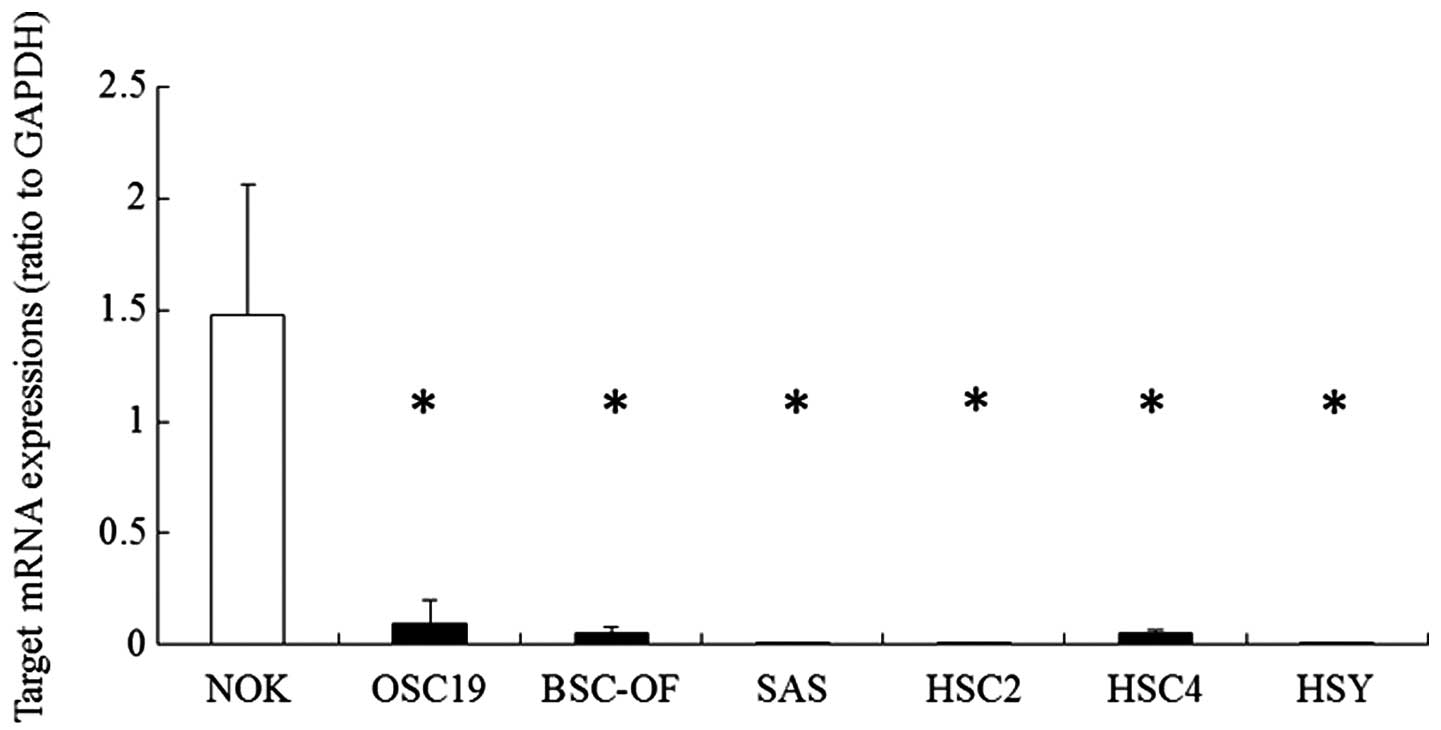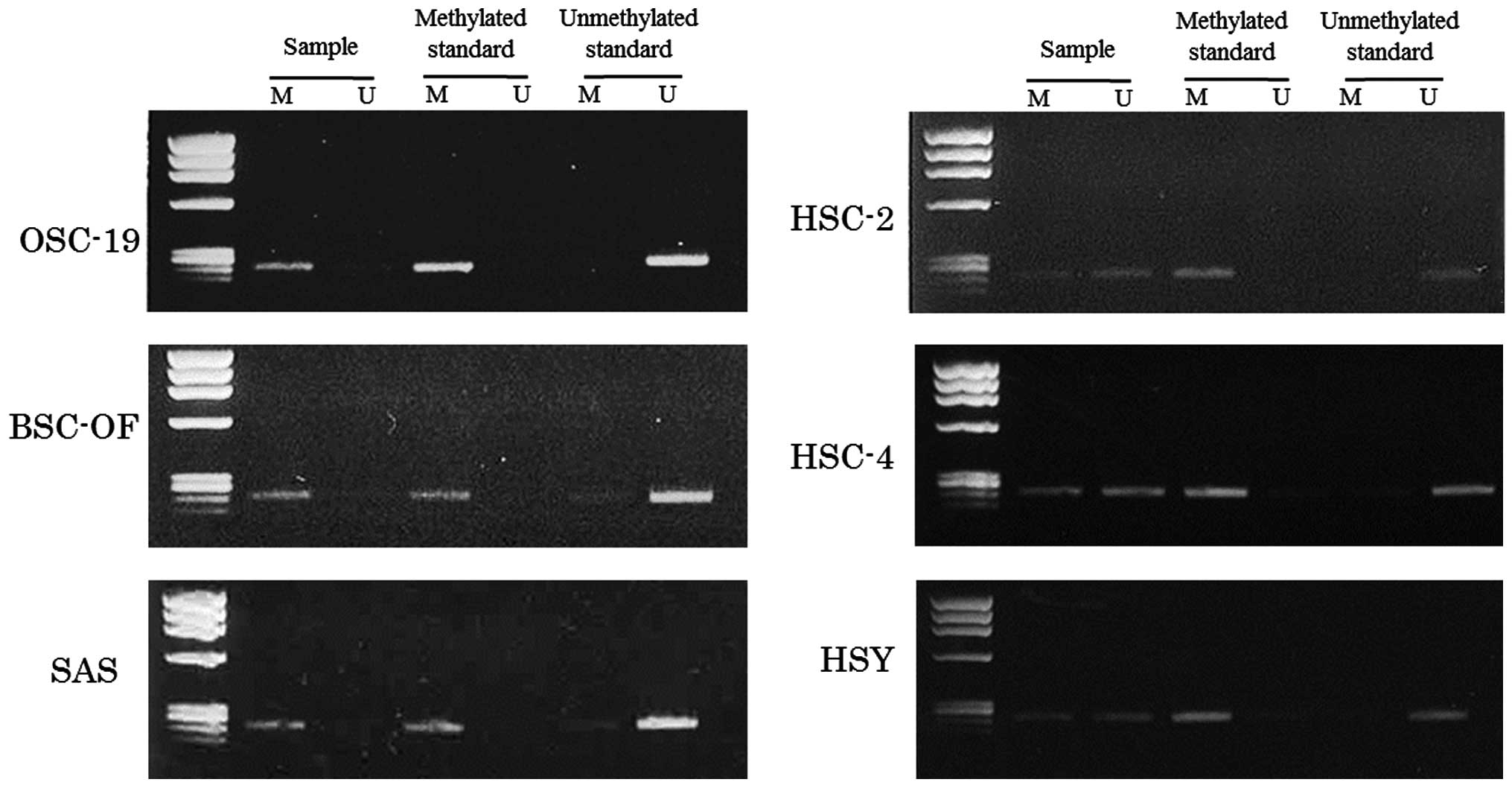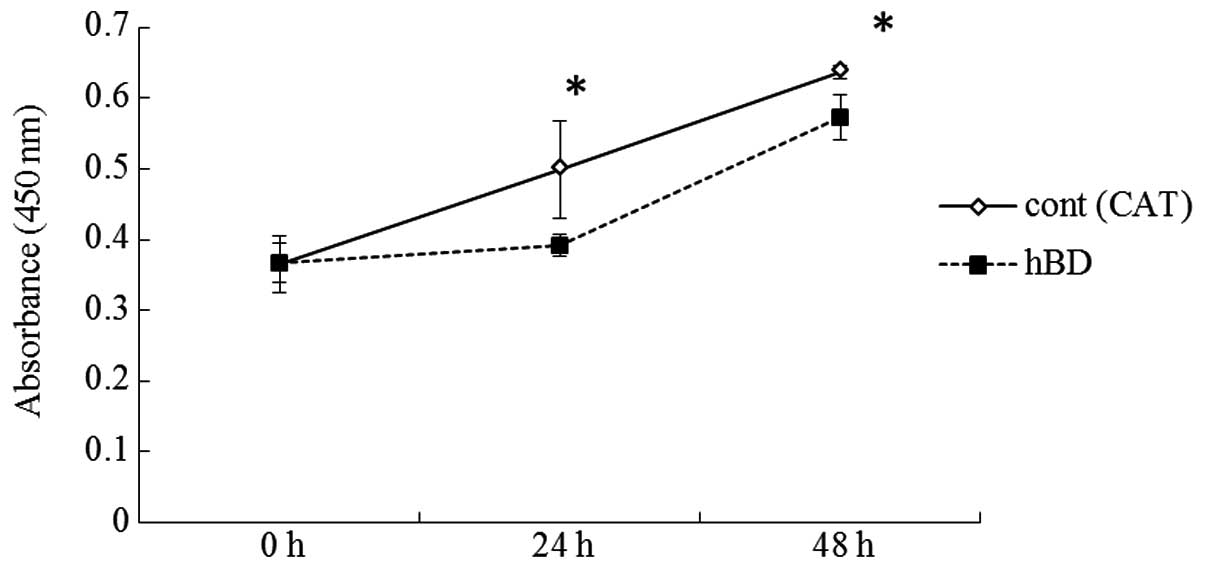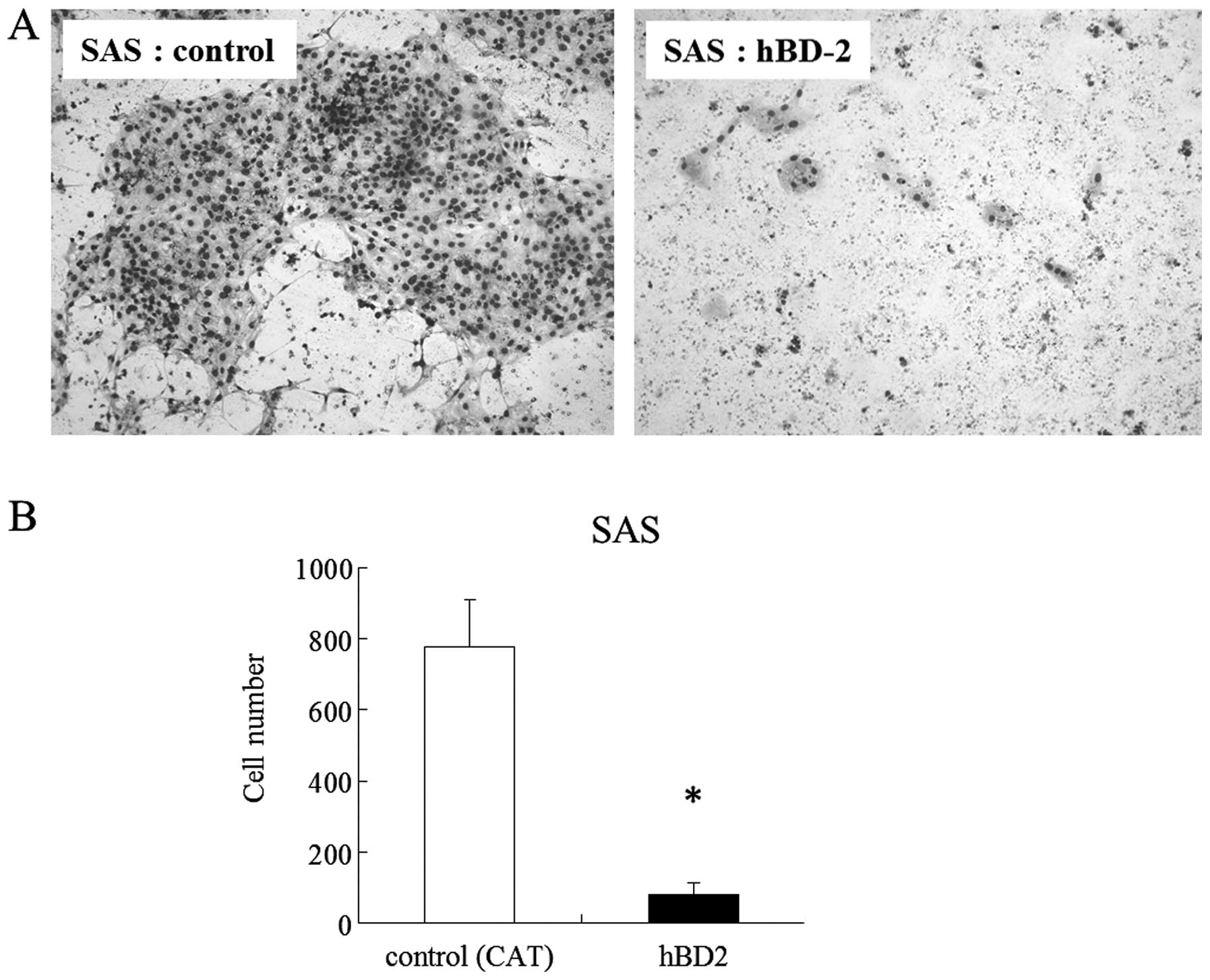|
1
|
Abiko Y and Saitoh M: Salivary defensins
and their importance in oral health and disease. Curr Pharm Des.
13:3065–3072. 2007. View Article : Google Scholar : PubMed/NCBI
|
|
2
|
Diamond G and Ryan L: Beta-defensins: what
are they really doing in the oral cavity? Oral Dis. 17:628–635.
2011. View Article : Google Scholar : PubMed/NCBI
|
|
3
|
Droin N, Hendra JB, Ducoroy P and Solary
E: Human defensins as cancer biomarkers and antitumour molecules. J
Proteomics. 72:918–927. 2009. View Article : Google Scholar : PubMed/NCBI
|
|
4
|
Semple F and Dorin JR: β-Defensins:
multifunctional modulators of infection, inflammation and more? J
Innate Immun. 4:337–348. 2012.
|
|
5
|
Abiko Y, Mitamura J, Nishimura M,
Muramatsu T, Inoue T, Shimono M and Kaku T: Pattern of expression
of beta-defensins in oral squamous cell carcinoma. Cancer Lett.
23:37–43. 1999. View Article : Google Scholar : PubMed/NCBI
|
|
6
|
Wenghoefer M, Pantelis A, Dommisch H,
Reich R, Martini M, Allam JP, et al: Decreased gene expression of
human β-defensin-1 in the development of squamous cell carcinoma of
the oral cavity. Int J Oral Maxillofac Surg. 37:660–663. 2008.
|
|
7
|
Joly S, Compton LM, Pujol C, Kurago ZB and
Guthmiller JM: Loss of human β-defensin 1, 2, and 3 expression in
oral squamous cell carcinoma. Oral Microbiol Immunol. 24:353–360.
2009.
|
|
8
|
Sun CQ, Arnold R, Fernandez-Golarz C,
Parrish AB, Almekinder T, He J, et al: Human β-defensin-1, a
potential chromosome 8p tumor suppressor: control of transcription
and induction of apoptosis in renal cell carcinoma. Cancer Res.
66:8542–8549. 2006.
|
|
9
|
González-Ramírez I, García-Cuellar C,
Sánchez-Pérez Y and Granados-García M: DNA methylation in oral
squamous cell carcinoma: molecular mechanisms and clinical
implications. Oral Dis. 17:771–778. 2011.PubMed/NCBI
|
|
10
|
Radhakrishnan R, Kabekkodu S and
Satyamoorthy K: DNA hypermethylation as an epigenetic mark for oral
cancer diagnosis. J Oral Pathol Med. 40:665–676. 2011. View Article : Google Scholar : PubMed/NCBI
|
|
11
|
Chen QW, Zhu XY, Li YY and Meng ZQ:
Epigenetic regulation and cancer (Review). Oncol Rep. 31:523–532.
2014.PubMed/NCBI
|
|
12
|
Saitoh M, Kurashige Y, Yamazaki M,
Nishimura M, Nakamura S, Noro D, et al: Increased expression of
β-defensin-2 and -3 during the development of autoimmune
sialoadenitis in MRL/lpr mice. Med Mol Morphol. 40:157–162.
2007.
|
|
13
|
Herman JG, Graff JR, Myöhänen S, Nelkin BD
and Baylin SB: Methylation-specific PCR: a novel PCR assay for
methylation status of CpG islands. Proc Natl Acad Sci USA.
93:9821–9826. 1996. View Article : Google Scholar : PubMed/NCBI
|
|
14
|
Winter J, Pantelis A, Reich R, et al:
Human beta-defensin-1, -2, and -3 exhibit opposite effects on oral
squamous cell carcinoma cell proliferation. Cancer Invest.
29:196–201. 2011. View Article : Google Scholar : PubMed/NCBI
|
|
15
|
Macaluso M, Montanari M, Cinti C and
Giordano A: Modulation of cell cycle components by epigenetic and
genetic events. Semin Oncol. 32:452–457. 2005. View Article : Google Scholar : PubMed/NCBI
|
|
16
|
Kim E and Deppert W: Transcriptional
activities of mutant p53: when mutations are more than a loss. J
Cell Biochem. 93:878–886. 2004. View Article : Google Scholar : PubMed/NCBI
|
|
17
|
Gnyszka A, Jastrzebski Z and Flis F: DNA
methyltransferase inhibitors and their emerging role in epigenetic
therapy of cancer. Anticancer Res. 33:2989–2996. 2013.PubMed/NCBI
|
|
18
|
Nishimura M, Abiko Y, Kurashige Y,
Takeshima M, Yamazaki M, Kusano K, Saitoh M, Nakashima K, Inoue T
and Kaku T: Effect of defensin peptides on eukaryotic cells:
primary epithelial cells, fibroblasts and squamous cell carcinoma
cell lines. J Dermatol Sci. 36:87–95. 2004. View Article : Google Scholar : PubMed/NCBI
|
|
19
|
Zhuravel E, Shestakova T, Efanova O,
Yusefovich Y, Lytvin D, Soldatkina M and Pogrebnoy P: Human
beta-defensin-2 controls cell cycle in malignant epithelial cells:
in vitro study. Exp Oncol. 33:114–120. 2011.PubMed/NCBI
|
|
20
|
Winter J, Pantelis A, Reich R, Martini M,
Kraus D, Jepsen S, Allam JP, Novak N and Wenghoefer M: Human
α-defensin (DEFA) gene expression helps to characterise benign and
malignant salivary gland tumours. BMC Cancer. 12:4652012.
|
|
21
|
Frye M, Bargon J and Gropp R: Expression
of human beta-defensin-1 promotes differentiation of keratinocytes.
J Mol Med. 79:275–282. 2001. View Article : Google Scholar : PubMed/NCBI
|
|
22
|
Abiko Y, Nishimura M, Kusano K, Yamazaki
M, Arakawa T, Takuma T and Kaku T: Upregulated expression of human
β defensin-1 and -3 mRNA during differentiation of keratinocyte
immortalized cell lines, HaCaT and PHK16-0b. J Dermatol Sci.
31:225–228. 2003.
|
|
23
|
Liu AY, Destoumieux D, Wong AV, Park CH,
Valore EV, Liu L and Ganz T: Human β-defensin-2 production in
keratinocytes is regulated by interleukin-1, bacteria, and the
state of differentiation. J Invest Dermatol. 118:275–281. 2002.
|
|
24
|
Harder J, Meyer-Hoffert U, Wehkamp K,
Schwichtenberg L and Schröder JM: Differential gene induction of
human β-defensins (hBD-1, -2, -3, and -4) in keratinocytes is
inhibited by retinoic acid. J Invest Dermatol. 123:522–529.
2004.
|





















